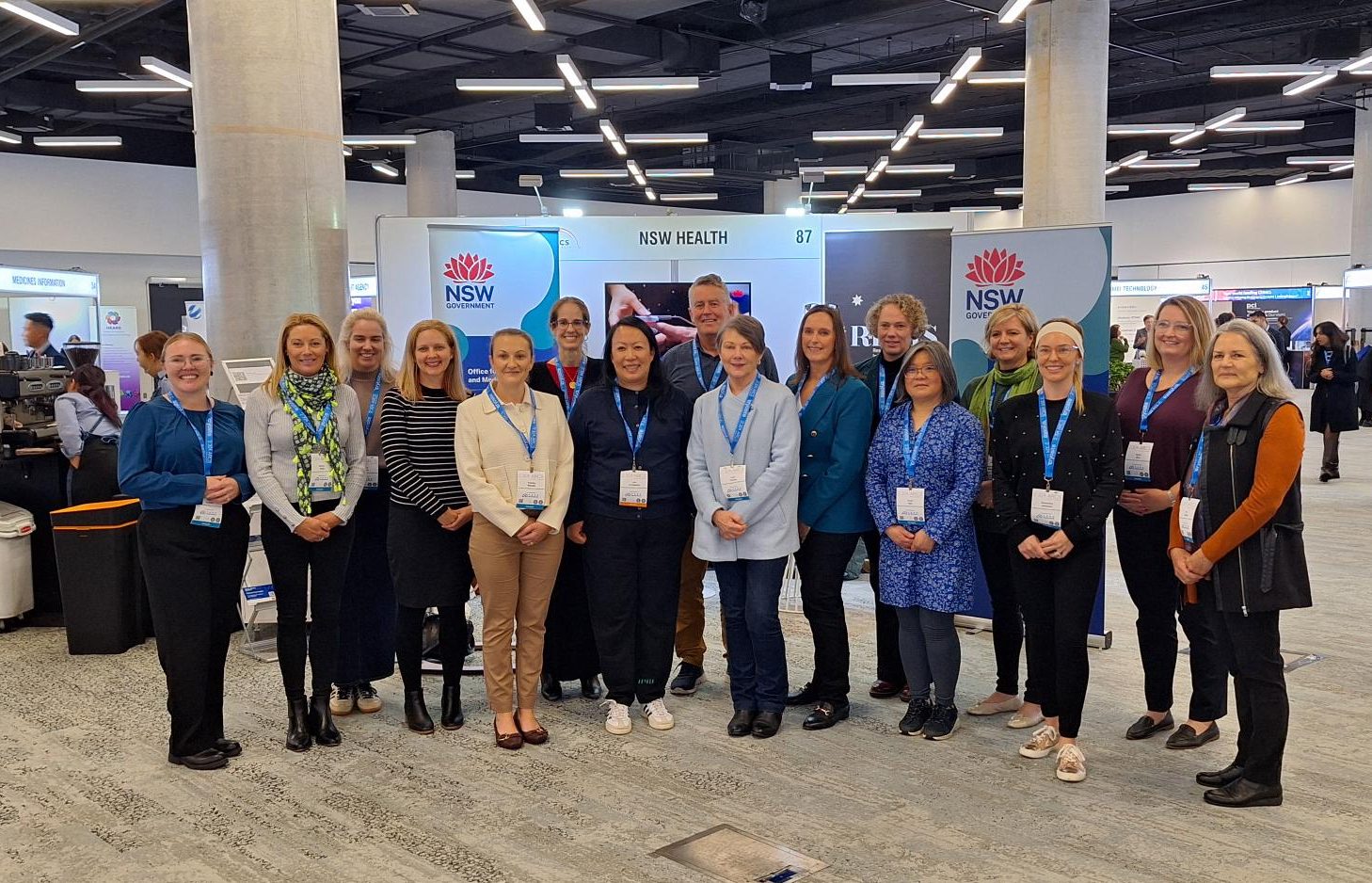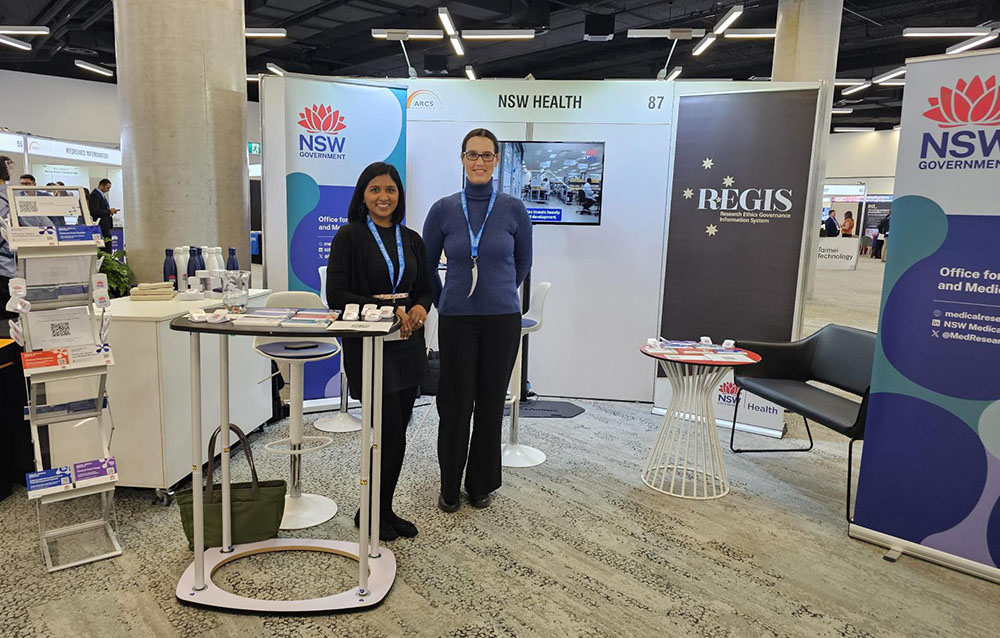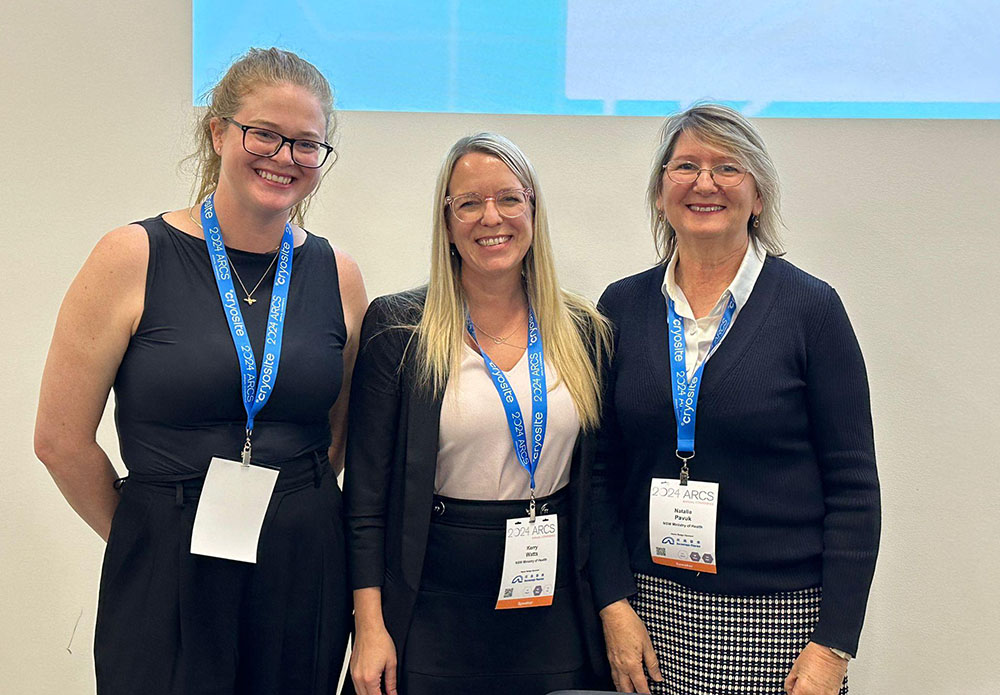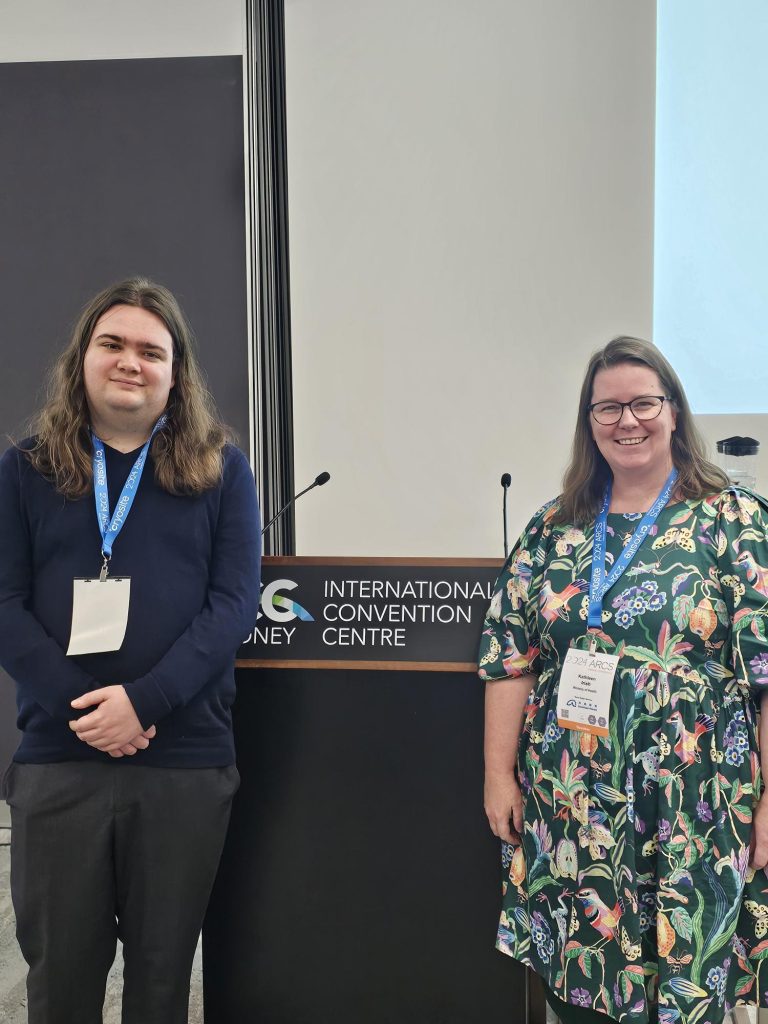Future Snapshot: ARCS 2024 explores future of drugs, data and medical devices
AI, clinical trials, advanced therapeutics and partnering with patients were dominant themes at the ARCS Conference 2024, which showcased the current and future face of healthcare.
In recent decades clinical trials and healthcare treatments and systems have become more personalised, data driven, person-centred, interconnected and multi-disciplinary. But how future ready are we for this rapidly changing landscape? This question was explored at the 2024 annual conference for ARCS.

ARCS is the peak body representing professionals working in the therapeutics goods sector. From June 12 to 14, the ARCS annual conference was held at Sydney’s International Convention Centre. Clinicians, researchers, academics, healthcare workers and regulators, industry professionals and consumers attended. The main theme of this year’s event was ‘The Future Of Medicine: The confluence of devices, drugs and data’.
Representatives from the Office for Health and Medical Research (OHMR) were highly visible throughout the conference, showcasing the pioneering work of OHMR through presentations, attending conference sessions, connecting with key opinion leaders after panel discussions and engaging in many inter-jurisdictional discussions. At the OHMR booth in the exhibition hall, delegates were also available over the three days to field all enquiries. They fostered new relationships and explained the many different streams of support that OHMR provides to facilitate engagement of stakeholders in the healthcare sector in order to improve patient outcomes through health and medical research and innovation.
OHMR presentation highlights
Key ARCS presentations from OHMR focussed on the following top of mind topics:

1. Managing successful and time efficient change
ARCS 2024 explored technology use across the healthcare sector, including the challenges and benefits of AI. Streamlining the approval of clinical trials was a major theme. The National One Stop Shop session examined how the new platform will fast-track clinical trials and cutting-edge treatments, consolidating Australia as a leading destination for health and medical research. Clinical research and data, technology and informatics also featured in many different sessions, including a standing-room only presentation called Coalition of the willing – Change management in solution implementation. This shed light on how NSW Health is leading innovation in systems improvement.
The session was co-presented by Shelley Burnett, a Principal Project Officer for OHMR. Burnett is leading the implementation of a clinical trial management system across all NSW public hospitals. She has extensive experience in clinical trials for rare and high-risk paediatric cancers, working with immunotherapy, biologics and novel agents. “When outlining key success factors, I highlighted the importance of resourcing and monitoring to avoid delays or derailment by lack of uptake and engagement,” explains Burnett. “It is critical not to under-estimate the people component of change management. The way you pitch the new system should be tailored for those who are enthusiastic about system change, those just going along with it, and the roughly 7% of team members who adamantly resist change.”
Burnett was joined by presenter James Cokayne, Principal Policy Officer, Research Ethics and Governance Unit for OHMR. In addition to applying his medico-legal background to ethics and governance he advises NSW Health on research and policy-related queries about clinical trial agreements, insurance and indemnity, and the Human Research Ethics Committee component of the NSW early phase clinical trial framework. “Our presentation discussed REGIS, the electronic ethics and governance approval workflow system used to authorise NSW research and clinical trials in the public sector,” says Cokayne. “REGIS has informed our change management approach in subsequent systems and we were extremely open about our mistakes, wins and lessons – a transparency I believe was much appreciated by our diverse audience.” Tam Ngyen, Deputy Director of Research at St Vincent’s Hospital in Melbourne also contributed to this discussion.

2. Regulatory pathways for phage therapy and non-animal technologies
The conference explored innovations, challenges and priorities emerging from the quantum shifts in how health conditions are now studied, prevented, diagnosed, and treated. Latest global and Australian regulatory developments were discussed, including updates on prescription and non-prescription medications, medical devices regulations, GMP/Manufacturing as well as medical operations.
To showcase the work of NSW Health in this area, representatives presented a panel session entitled, Navigating the future: Regulatory insights and innovations in advanced therapeutics. This discussed regulatory challenges and innovative approaches related to the registering of bacteriophage as a therapeutic treatment. The showcase highlighted the work of NSW Health in phage therapy, an effective intervention for infections and infectious diseases and a promising antibiotic alternative that may provide a solution to global antimicrobial resistance. The presentation also addressed how OHMR is building networks and addressing regulatory challenges to reduce and replace animals in medical research and drug development with alternatives such as “organoids” 3D mini-organs grown from human stem cells and 3D bioprinting technology.
The session was chaired by Dr Laura Collie who established the Advanced Therapeutics team within OHMR, where she is also a Public Health Senior Medical Advisor. Kerry Watts, Senior Project and Policy Officer with OHMR offered insights as a pharmacist and author of the NSW Health Policy Directive Preparation of Pharmaceutical and advanced therapeutic products, specialising in GMP and regulation. Completing the panel was Natalie Pavuk, Senior Policy Officer with OHMR, who has 25 years in biopharma industry and deep expertise in research, horizon-scanning, analytics and problem-solving.

3. Early mid-career grants and workforce retention
Career scaffolding and workforce retention were trending themes at ARCS 2024. They were both addressed in Unlocking Potential: Exploring the Clinical Trials Workforce and Research Grant Impact. The session was kicked off by Kathleen Irish, Manager of Clinical Trials at OHMR. Irish has worked for 25 years in clinical trials in public and private hospitals for local, national and international research projects. Her presentation focused on boosting insights into the Clinical Trials workforce through the clinical trials register of staff.
Co-presenting was Mr Thomas McCorquodale, an OHMR Senior Policy Officer with 15 years’ experience in clinical health, research, and policy environments. McCorquodale presentation explored the Value of Early and Mid-Career Health and Medical Research Grants. He was joined by Claudia Coyle, an OHMR Policy Officer who manages the NSW Health Early-Mid Career (EMC) competitive grant program, that funds EMC researchers who have shown exceptional talent in their field of research. The pair presented the findings of the first two rounds of the EMC grant program, including the process, impact, learnings and economic evaluation of 30 projects.
Snapshots of the future
On the final day of the conference the focus shifted to diversity, inclusion, equity and access in healthcare and clinical trials. Patient perspectives and consumer engagement in all aspects of the healthcare ecosystem were flagged as a top priority. As the conference wrapped up, attendees departed into the rainy night having gained important insights from presentations and panel discussions which educated, informed, updated, grew knowledge and started conversations that will have many ongoing future-facing impacts and benefits.
Updated 5 months ago